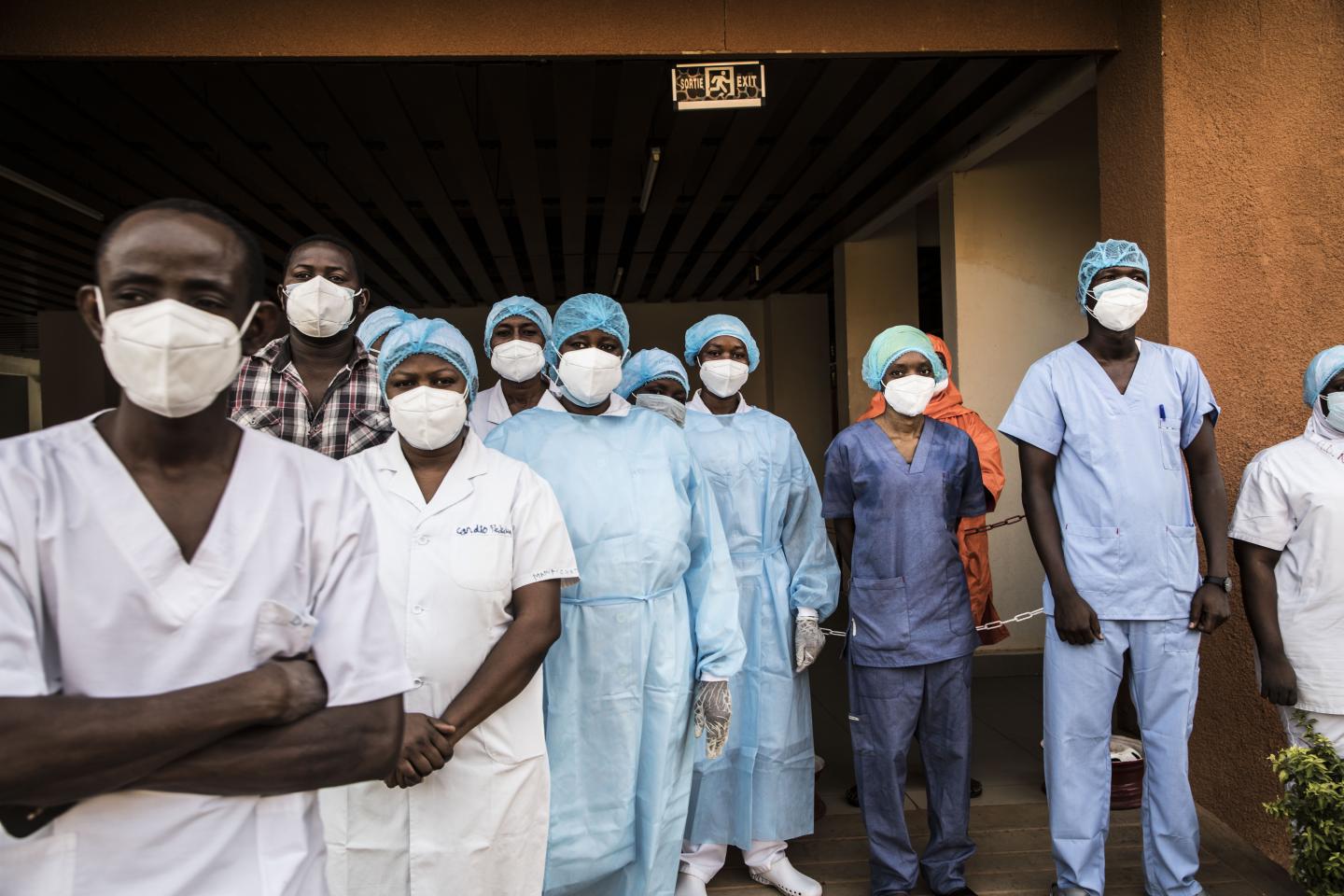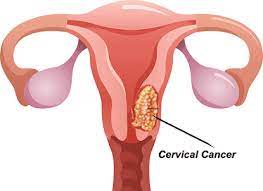Health
Negligence in hospitals and quest for patients’ safety

In every profession the practitioners are bound to make mistakes. A tailor, out of negligence, may make a mistake while cutting materials same as a plumber while fixing the pipes.
However, while some mistakes and negligence in some professions can be tolerated, in other professions, it could be fatal and irredeemable.
In this category are medical and health workers.
Negligence on their part can lead to devastating consequences for patients and their loved ones.Medical negligence, according to the Free Dictionary, is the improper, unskilled, or negligent treatment of a patient by a physician, dentist, nurse, pharmacist or other health care professional.
It underscores the critical need for healthcare providers to prioritise patient safety, maintain stringent standards of care, and foster a culture of accountability.
Patient safety refers to efforts and measures taken to ensure the safety, well-being, and quality of healthcare services provided to patients.
It encompasses various aspects such as preventing medical errors, reducing harm, improving communication, promoting patient empowerment, and establishing a culture of patient safety within healthcare facilities.
On the occasion of World Patient Safety Day, with the theme: “Engaging patients for patient safety”. The theme was selected in recognition of the crucial role patients, families and caregivers play in the safety of health care.
Ms Nkechi Akande, 39, is a school teacher wen to hospital for a surgical procedure, unaware of the challenges that awaited her.
Akande alleged that due to negligence, her condition took a turn for the worse, plunging her into a nightmare she never anticipated.
“During my hospital stay, my vital signs were not adequately monitored, medications were administered incorrectly, and post-operation care was inadequate.
“As a result, my health rapidly deteriorated, and I experienced severe complications. What should have been a straightforward procedure turned into a journey of pain, multiple corrective surgeries, and an arduous recovery process,” she narrated.
She said that the impact of this went beyond the physical realm, affecting her mental and emotional well-being.
“Anxiety, depression, and a loss of trust in the healthcare system became her constant companions. However, I decided to transform my harrowing experience into a catalyst for change.
“Driven by a desire to prevent others from enduring a similar ordeal, I became an advocate for patient safety,” said Akende who is now a health care safety advocate.
She has been sharing her story, raising awareness about the importance of proper hospital protocols, staff training, and patient empowerment.
“Collaborating with patient safety organisations, I have dedicated myself to ensuring that hospitals prioritize patient well-being and implement robust measures to prevent future incidents,” she said.
Akande’s story serves as a poignant reminder of the devastating impact hospital negligence can have on Nigerians and their families.
Although she has been vocal about her experience, hers is almost a common development in many hospitals nationwide most of which have gone unnoticed.
According to experts, the emerging concern of patient safety in the country has been described due to its large population.
This calls for effective patient safety policies and infrastructure to address quality issues in healthcare.
While patient safety received attention during the COVID-19 pandemic, particularly in areas such as sanitation and infection control this focus has declined and COVID-19 threat diminishes.
Although some patients or their loved ones have gone to the court to seek redress when they think their safety has been compromised, most others just move on with their lives.
However, legal experts say the Nigeria’s laws also protect the rights of patients to safety.
Dr Henry Okeke, Lecturer, International Law &Jurisprudence Department, Faculty of Law, Nnamdi Azikiwe University, said Nigeria is a common law country which has been adopted common law principles in its medico-legal considerations.
“It is true that there exist health regulatory framework and that such regulatory services can be extended to the administration of Patient safety related matters?
“Of course, any health law that promotes the wellbeing of the patient is considered as promoting patient safety, except that it may not optimally regulate liabilities arising out of patient safety-related offences and matters,” he explained.
Okeke, therefore, urged Nigerian legislators pass more laws that would strengthen the safety patients and overall quality of health care delivery in the country.
Ducit Blue Solutions, an organisation which seeks to enhance quality service delivery and patient safety in Nigeria, said that patient safety was essential for the quality and effectiveness of healthcare services.
The Foundation said that to ensure safe healthcare practices in the country, the government and other key health players should establish a Patient Safety Programme Board that oversees the strategic delivery of education.
“They should also provide adequate and high-quality educational resources and train staff to practise safely,” it said in a report.
But government says it is taking steps to address the challenges.
Dr Shetak Gilbert, Head of Patient Safety/Oxygen, Federal Ministry of Health (FMOH), said that Nigeria has developed the first ever National Policy and Implementation Strategy on Patient Safety and care quality.
Gilbert said the policy is in line with the Resolution 18 of the 55th World Health Assembly (WHA 55.18) which called for member states to recognise the burden of patient safety and to set up policies to manage them.
“The National Patient Safety and Care Quality policy focuses on improving different aspects of patient safety including family engagement in health care, medication safety, surgical safety, infection prevention and control (IPC) etc. etc.
“The document aligned with the FMOH four-point agenda: improving quality of health governance in Nigeria and improving population health outcomes.
It is also in line with medical industrialisation-the value chain of the health sector; and improving health security- preparatory response to public health threats,” he explained.
According to the Chairman National Advocates for Health (NA4H), Mohammed Usman, the Nigerian healthcare system recognise the importance of patient safety and has made efforts to address this issue.
“The Federal Ministry of Health and Social Welfare, in collaboration with other stakeholders, has developed policies and guidelines to improve patient safety standards and practices in the country,” he said.
Usman said it was important to note that while efforts were being made to improve patient safety in the country there was still plenty of work to be done.
“Challenges such as limited resources, inadequate infrastructure, and systemic issues can hinder progress.
“However, with ongoing commitment, collaboration, and implementation of evidence-based practices, Nigerian patient safety can continue to improve, ensuring better healthcare outcomes for all patients,” he explained.
Health
Experts Seek Unified Action against Cervical Cancer

Torough David, Abuja
Stakeholders across health sectors have called for urgent, coordinated investment in prevention, equitable HPV vaccine access and harmonized health data to accelerate progress towards elimination of cervical cancer across Africa.
They made the call on Wednesday, during a panel session with the Theme ”Accelerating Cervical Cancer Elimination in Nigeria, From Policy to Practice”.
Head of Division, Maternal, Newborn, Child and Adolescent Health, Africa CDC, Dr Fidele Ngabo Gaga, highlighted its efforts to harmonise and aggregate health data across all 55 African Union (AU) Member States.
“We are developing a continent-wide data-sharing agreement and centralised repository to support data upstreaming and policy development.
“The goal is to present unified data at AU Summits, helping countries make evidence-based decisions,” Gaga said:
Prof. Imran Morhason-Bello, a leading gynaecologic oncologist from the University College Hospital, Ibadan, made a compelling financial case for prioritising prevention over treatment.
“Screening just between 2023 and 2027 will cost Nigeria N351 billion.
“But treating 10,000 women with invasive cervical cancer from 2027 to 2030 could cost us N1.4 trillion. Prevention is not only more humane, it is far more cost-effective,” he said.
Morhason-Bello also addressed innovations such as self-sampling for HPV testing, already being implemented in Nigeria through implementation science.
“Women receive a self-sampling kit, return it the same day, and positive results are treated before noon.
“It is happening in markets and schools. It is not a pilot, it is real.
“We have even developed a mobile app (available in multiple languages and offline) to guide women through the self-sampling process, increasing accessibility in low-resource settings,” he said.
External Affairs Director for MSD, Sub-Saharan Africa, Vuyo Mjekula, addressed one of the most common myths around the HPV vaccine rollout.
“Let me be clear, there is no shortage of HPV vaccines. If anyone tells you otherwise, call me directly. The real issue is equity and strategic allocation,” she said.
Mjekula recalled early proposals that included boys in HPV vaccination efforts, but warned that without careful planning, some countries would be left out entirely.
She called for one national policy that ensures equitable access to vaccines and services, especially for the most vulnerable girls.
“This is not about science alone. A dose costing N125,000 may be affordable to some, but to a woman in a rural village, it is like N10 million.
“If she must choose between survival and feeding her children, the answer is obvious,” she said.
She applauded Nigeria’s progress, noting that since the national rollout, the number of vaccinated girls across the continent has more than doubled, driven primarily by Nigeria’s leadership.
Mjekula also made an appeal for multi-sectoral collaboration, urging the involvement of private sector giants, from banks to telecoms and philanthropic foundations.
“Health is not just the government’s responsibility. We need to imagine beyond the healthcare we can afford with public funds and work toward the healthcare we want as a society,” she said.
She also called for a business case for investment in HPV prevention and cancer control, saying the task force must work hand-in-hand with all stakeholders.
“Let us go far together. If you want to go quickly, go alone. But if you want to go far, go together,” she said.
The symposium concluded with a call to integrate cancer screening into primary health care services.
It also called for the deployment of cost-effective technologies like self-sampling, addressing myths around vaccine shortages, and ensuring gender-sensitive, data-informed policies.
As Nigeria and the continent advance towards achieving the WHO 90-70-90 cervical cancer elimination targets, the message from experts was clear: “Let us do big and let us do it together”.
Health
89% of Infants Vaccinated Globally in 2024, WHO, UNICEF Warn of Risks

The United Nations agencies have reported that in 2024, approximately 89 per cent of infants worldwide, about 115 million children, received at least one dose of the diphtheria, tetanus, and pertussis (DTP) vaccine.This update comes from new national immunisation coverage data released on July 14 by the World Health Organisation (WHO) and the United Nations Children’s Fund (UNICEF).
Compared to 2023, an additional 171,000 children received at least one vaccine dose, and one million more completed the full three-dose DTP series. While these gains are modest, they reflect ongoing global efforts to protect children in spite of rising challenges.However, nearly 20 million infants still missed at least one DTP vaccine dose in 2024, including 14.3 million “zero-dose” children who never received any vaccine.This figure exceeds the 2024 target by four million, putting global immunisation goals outlined in the Immunisation Agenda 2030 at risk.WHO Director-General Dr Tedros Ghebreyesus emphasised the life-saving power of vaccines, stating, “It’s encouraging to see an increase in children vaccinated, but we still have much work to do. “Cuts in aid and vaccine misinformation threaten to reverse decades of progress.”He highlighted factors contributing to under-vaccination, including limited healthcare access, supply disruptions, conflict, and misinformation.“Data from 195 countries show 131 have consistently reached at least 90 per cent coverage with the first DTP dose since 2019. Yet, progress is stalling in 47 countries, with 22 nations seeing declines after previously meeting this target.”Tedros warned that conflict and humanitarian crises significantly undermined vaccination efforts.“A quarter of the world’s infants live in 26 fragile or conflict-affected countries, which account for half of all unvaccinated children globally.“In these areas, unvaccinated children rose from 3.6 million in 2019 to 5.4 million in 2024, highlighting an urgent need for integrated immunisation in humanitarian responses.“Immunisation coverage in 57 low-income countries supported by Gavi, the Vaccine Alliance, improved in 2024, reducing the number of under-vaccinated children by about 650,000.“Yet, some upper-middle- and high-income countries face early signs of declining coverage, which increases the risk of disease outbreaks.”UNICEF Executive Director Catherine Russell welcomed the progress but warned millions of children remained vulnerable to preventable diseases.She called for urgent action to overcome barriers such as shrinking health budgets, fragile systems, misinformation, and conflict-related access issues.Russell noted encouraging expansions in vaccines against HPV, meningitis, pneumococcal disease, polio, and rotavirus.“Global HPV vaccine coverage among eligible adolescent girls rose from 17 per cent in 2019 to 31 per cent in 2024, although it remains far below the 90 per cent target set for 2030.”Gavi CEO Dr Sania Nishtar added that while lower-income countries protected more children than ever, population growth, fragility, and conflict continued to hamper equity in vaccination efforts.She highlighted improvements in measles coverage but cautioned that it still fell short of the 95 per cent threshold required to prevent outbreaks.“Measles outbreaks nearly doubled from 33 countries in 2022 to 60 in 2024.”Nishtar stressed that funding shortfalls, instability, and rising misinformation threaten to stall or reverse progress, risking increased deaths from vaccine-preventable diseases.WHO and UNICEF called on governments and partners to close funding gaps for Gavi’s 2026–2030 strategic cycle to protect millions of children.They also urged strengthening immunisation efforts in conflict-affected and fragile settings, and prioritising locally led strategies and increased domestic investment in primary healthcare systems.Additionally, the agencies emphasised the need to counter vaccine misinformation through evidence-based campaigns.They also called for greater investment in robust data collection and disease surveillance systems to guide effective immunisation programmes. (NAN)Health
Nigeria Records 145 Lassa Fever Deaths, as Fatality Rate Increases

Nigeria has recorded 145 deaths from Lassa fever as of 2025 Epidemiological Week 25, with a case fatality rate (CFR) of 18.6 percent.
The Nigeria Centre for Disease Control and Prevention (NCDC), disclosed this in its latest report via its official website during the weekend in Abuja.
The NCDC said the week 25 figure marks an increase from 17.
6 percent reported for the same period in 2024.The report, which covered the week of June 16–22, revealed that 781 confirmed cases were reported out of 5,943 suspected cases across 20 states and 101 Local Government Areas (LGAs).
In the current reporting week, 10 new confirmed cases were reported in Ondo and Edo states with a slight increase from the eight cases recorded the previous week.
According to NCDC, 91 per cent of all confirmed cases in 2025 were reported from five states of Ondo (31%), Bauchi (24%), Edo (17%), Taraba (16%) and Ebonyi (3%).
It said that the disease continues to affect young adults predominantly, within the 21 to 30 age group most impacted. Males were slightly more affected, with a male-to-female ratio of 1:0.8.
The Nigerian public health agency, said that despite a decline in the overall number of suspected and confirmed cases compared to 2024, the rise in CFR is raising concerns among health experts.
The agency highlighted late presentation of cases, high treatment costs, and poor health-seeking behaviour as contributing factors to the increased fatality.
It said that no new infections among health workers were recorded in the reporting week, though 23 healthcare workers have been affected cumulatively this year.
The NCDC said it is currently in collaboration with partners, such as the World Health Organisation (WHO), the United States Centers for Disease Control and Prevention (US CDC), ALIMA, the Institute of Human Virology Nigeria (IHVN) and others.
The collaborations, it stated further, have intensified multi-sectoral response efforts to combat the spread of Lassa fever.
It said that, as part of these efforts, Integrate clinical trials are currently ongoing in Ondo State, with After Action Reviews (AARs) conducted in both Ondo and Ebonyi to evaluate the response to the outbreak.
The agency said that clinician sensitisation, community engagement activities and environmental response campaigns have been carried out in identified hotspot areas.
In addition, the NCDC said that it has deployed 10 national rapid response teams to various states, adopting a one health approach to disease control.
To further strengthen infection prevention and control (IPC), the agency launched an IPC e-learning platform and distributed updated Viral Hemorrhagic Fever (VHF) guidelines to health facilities across the country.
The agency said that other efforts also included active contact tracing, surveillance, media engagement and geospatial risk mapping, alongside regular webinars for clinicians and capacity-building sessions nationwide.
The NCDC identified key challenges including poor environmental sanitation and low community awareness, particularly in high-burden LGAs.
It also said that sustained efforts were needed to curb the fatality rate, ensure early detection, and improve public health outcomes.
The NCDC advised Nigerians to maintain proper hygiene, avoid contact with rodents, and seek medical help promptly when experiencing symptoms such as fever, sore throat, vomiting, or unexplained bleeding.
Lassa fever, which was first identified in 1969 in Lassa, Borno, is endemic in Nigeria, with outbreaks occurring annually.
Symptoms range from mild fever and joint pain to severe bleeding from the nose, mouth, and gastrointestinal tract.
The disease is fatal in about 20 percent of cases, particularly when treatment is delayed.
Across West Africa, hundreds of thousands are infected annually, experiencing symptoms such as fever, vomiting and, in severe cases, bleeding.
One of the most troubling complications is hearing loss, which affects about 25 percent of survivors.
The estimated fatality rate is one per cent, but during outbreaks, mortality can rise significantly, particularly among pregnant women and healthcare workers.
In spite of its significant health impact, Lassa fever remains one of the most neglected diseases, with limited resources allocated to its preventions and treatments.
Currently, no licensed vaccines exist, although around 20 candidates are in development, with the most advanced in Phase IIa clinical trials.










